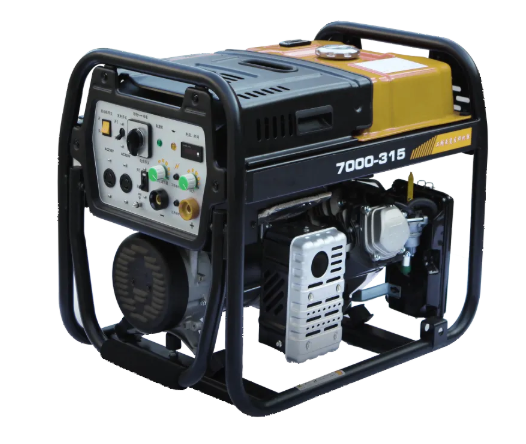Знаете ли вы, что один час незапланированного простоя может обойтись крупным промышленным предприятиям более чем в 100 000 долларов США из-за потерь производства и операционных последствий? В современных жестких условиях промышленности надежность электропитания — это не просто удобство, а основа непрерывной работы, достижения производственных целей и финансовой стабильности. Дизельные генераторы являются незамеченными героями тяжелой промышленности, обеспечивая резервное питание, которое поддерживает работу в периоды отключений, предотвращает повреждение оборудования и гарантирует функционирование систем безопасности. В этом подробном руководстве рассматривается, как эти мощные рабочие лошадки поддерживают промышленные операции в различных отраслях, освещается их важнейшая роль в поддержании производительности и защите ценных активов.
Ключевая роль надежности электропитания в промышленных операциях
Стоимость простоев в тяжелой промышленности
Промышленные операции сталкиваются с серьезными рисками при перебоях в подаче электроэнергии:
Потери производства : Производственные линии могут терять тысячи долларов в минуту во время остановок
Повреждение оборудования : Внезапная потеря питания может повредить чувствительные машины и процессы
Нарушение безопасности : Критически важные системы безопасности могут выйти из строя при отсутствии резервного питания
Потеря данных : Системы управления и контрольно-измерительные приборы могут потерять важную информацию
Почему дизель-генераторы превосходно подходят для промышленного применения
Дизельные генераторы обладают уникальными преимуществами для тяжелых условий эксплуатации:
Высокая способность крутящего момента для запуска крупных промышленных двигателей
Эффективность использования топлива по сравнению с другими типами генераторов
Прочность в жестких промышленных условиях
Длительный срок службы при правильном обслуживании
Быстрое время отклика во время перебоев с питанием
Ключевые применения в производстве и обработке
Непрерывные производственные процессы
Химические заводы : Предотвращение выхода реакторов из строя и возникновения аварийных ситуаций
Металлургические заводы : Поддержание температуры в печах и работа систем безопасности
Промышленность пищевых продуктов : Предотвращение порчи продукции и загрязнения производственной линии
Производство фармацевтических препаратов : Защита стерильной среды и целостности партий
Дискретное производство
Автомобильного производства : Предотвращение остановки производственной линии
Производство электроники : Предотвращение повреждения чувствительного оборудования
Операции по упаковке : Обеспечение непрерывного производственного графика
Робототехнические системы : Предотвращение необходимости повторного программирования после отключений
Вставить диаграмму применения: "Применение промышленных генераторов" - Альтернативный текст: diesel-generator-industrial-applications-map
Решения по электроснабжению для горнодобывающей и добывающей промышленности
Открытые горные работы
Оборудование для бурения : Обеспечение непрерывности процессов добычи
Производственные предприятия : Предотвращение перебоев в производстве
Конвейерные системы : Избежание узких мест при обработке материалов
Управление водными ресурсами : Обеспечение непрерывной работы систем обезвоживания
Подземная добыча
Системы вентиляции : Поддержание качества воздуха и безопасность работников
Подъёмное оборудование : Обеспечение безопасности шахтёров и транспортировки материалов
Системы связи : Поддержание в рабочем состоянии критически важных систем связи для обеспечения безопасности
Аварийные системы : Обеспечение электропитания для эвакуации и спасательных операций
Сопровождение строительных и инфраструктурных проектов
Электропитание для удалённых объектов
Временное электропитание для оборудования и объектов
Работа базового лагеря удовлетворение потребностей персонала
Заливка бетона требующая непрерывной работы
Тоннельные проекты с критически важными потребностями вентиляции
Поддержка постоянного монтажа
Пусконаладочные работы на этапе строительства
Тестирование и валидация систем здания
Временное резервное питание до завершения подключения коммунальных услуг
Резервное питание во время аварийных ситуаций на стройке
Защита центров обработки данных и технологических объектов
Центры обработки данных уровня Tier 3 и Tier 4
Резервирование N+1 требования к непрерывной работе
системы 2N обеспечение полного резервирования
Мгновенный ответ во время отключения сетевого питания
Тестирование нагрузочного блока для проверки системы
Производство технологий
Чистые помещения требующие постоянного контроля окружающей среды
Производство полупроводников предотвращение потерь на миллионы долларов
Серверные фермы обеспечение непрерывной работы
Научно-исследовательские объекты защита текущих экспериментов
Службы экстренного реагирования и критически важная инфраструктура
Медицинские учреждения
Резервное электропитание для больниц для оборудования, спасающего жизни
Медицинское оборудование требующего бесперебойной работы
Лабораторные системы защита исследований и испытаний
Зоны ухода за пациентами поддержание контроля окружающей среды
Инфраструктура обеспечения общественной безопасности
Центры экстренного реагирования поддержание связи
Водоочистные сооружения обеспечение непрерывного обслуживания
Транспортные системы поддержка управления движением и обеспечение безопасности
Сети связи поддержание работы критически важных соединений
Выбор промышленного дизельного генератора
Аспекты планирования мощности
Анализ нагрузки : Расчет общей подключенной и рабочей нагрузки
Расширение в будущем : Учет операционного роста и нового оборудования
Требования к запуску : Учет пусковых токов двигателей
Потребность в резервировании : Определение соответствующих уровней резервного питания
Технические характеристики
Основное и резервное электропитание рейтинги для различных применений
Требования к напряжению согласование с существующим оборудованием
Стабильность частоты потребности чувствительного оборудования
Условия окружающей среды влияющие на производительность
Работа с опытным Поставщик дизельных генераторов обеспечивает правильную спецификацию и установку для промышленных применений.
Стратегии технического обслуживания для максимальной надежности
Программа профилактического обслуживания
Плановое обслуживание на основе моточасов
Тестирование нагрузки проверка рабочих характеристик
Управление качеством топлива предотвращение загрязнения системы
Замена компонентов до возникновения отказа
Мониторинг и тестирование
Дистанционный мониторинг для отслеживания производительности в реальном времени
Автоматическое тестирование во время запланированных окон технического обслуживания
Анализ тенденций производительности для выявления возникающих проблем
Тестирование аварийного пуска проверка готовности системы
Вставить график технического обслуживания: «План технического обслуживания промышленного генератора» — альтернативный текст: diesel-generator-maintenance-schedule-industrial
Будущие тенденции в промышленной генерации электроэнергии
Технологические достижения
Цифровая интеграция с системами управления предприятием
Современный контроль выбросов соответствие более строгим нормативным требованиям
Гибридные системы в сочетании с возобновляемыми источниками энергии
Прогнозируемое обслуживание с использованием искусственного интеллекта и машинного обучения
Инициативы по устойчивому развитию
Совместимость с биотопливом снижение углеродного следа
Энергоэффективность улучшения за счёт передовых технологий
Снижение шума технологии для установок в городских условиях
Утилизация тепловых отходов повышение общей эффективности
Для операций, требующих немедленных решений, многие Поставщик дизельных генераторов компании поддерживают Дизель-генераторы в наличии конфигурации, подходящие для промышленного применения.
Заключение и следующие шаги
Дизельные генераторы остаются незаменимыми для тяжелых промышленных операций, обеспечивая надежное резервное питание, которое защищает инвестиции, гарантирует безопасность и поддерживает производительность. Правильная система генератора, своевременно обслуживаемая и правильно эксплуатируемая, может означать разницу между незначительным неудобством и катастрофическим сбоем в работе.
По мере того как промышленные процессы продолжают развиваться с ростом автоматизации и интеграции технологий, роль надежного резервного питания становится еще более важной. Инвестиции в правильное Дизельный генератор решение сегодня обеспечивают продуктивность и защиту вашей деятельности завтра.
Готовы обеспечить безопасность ваших промышленных операций? Наша команда экспертов в области промышленной энергетики помогла более чем 1500 объектам разработать и внедрить надежные решения для резервного электропитания. [Свяжитесь с нами сегодня, чтобы бесплатно оценить работу вашей системы и получить рекомендации по генератору]. Защитите свои инвестиции с помощью решений в области электроснабжения, разработанных для промышленных нужд.
Содержание
- Ключевая роль надежности электропитания в промышленных операциях
- Ключевые применения в производстве и обработке
- Решения по электроснабжению для горнодобывающей и добывающей промышленности
- Сопровождение строительных и инфраструктурных проектов
- Защита центров обработки данных и технологических объектов
- Службы экстренного реагирования и критически важная инфраструктура
- Выбор промышленного дизельного генератора
- Стратегии технического обслуживания для максимальной надежности
- Будущие тенденции в промышленной генерации электроэнергии
- Заключение и следующие шаги

